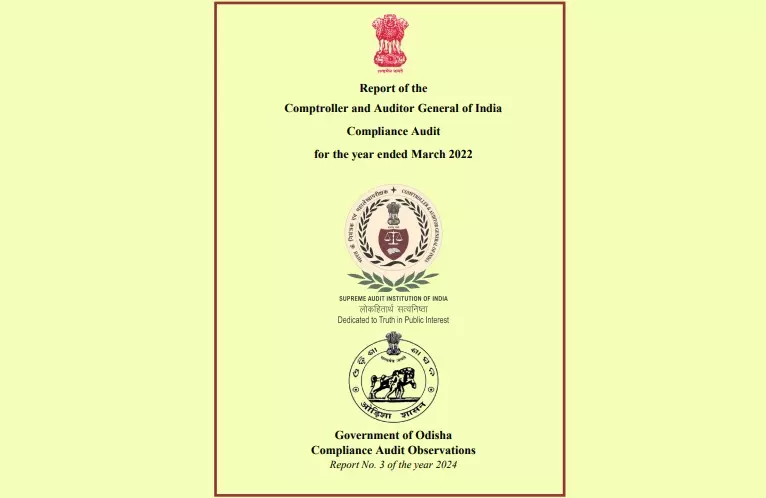CAG report highlights failures in Odisha's KALIA scheme
On the eve of 2019 Lok Sabha and assembly polls, the BJD had launched the KALIA scheme. It proved to be a game-changer for the BJD as it not only thwarted the rising discontentment against it but also helped the party win the polls to retain power in the state.

Bhubaneswar: The Comptroller and Auditor General of India compliance report presented on Wednesday in the Odisha Legislative Assembly by chief minister Mohan Charan Majhi found multiple faults with the previous Naveen Patnaik government’s much-hyped Krushak Assistance for Livelihood and Income Augmentation (KALIA) scheme which helped the Biju Janata Dal (BJD) retain the power in the state for the fifth consecutive term.
The CAG Compliance Audit report for the year ended March 2022 says that due to lack of preparedness, in planning, the ex-BJD government did not ensure the feasibility of implementation of the scheme.
“Due to lack of preparedness in planning, the department (agriculture department) did not ensure the feasibility of implementation of the scheme owing to which out of six components under the KALIA scheme, only two components i.e ‘Support to cultivators for cultivation’ and ‘Livelihood support for landless agricultural households’, were implemented during 2018-21. Further, only three out of five installments were released to beneficiaries under the first component as of March 2021,” the report said.
On the eve of 2019 Lok Sabha and assembly polls, the BJD government headed by Naveen Patnaik had launched KALIA scheme which aimed to accelerate agricultural prosperity and reduce poverty of cultivators. The scheme, according to political analysts, proved to be a game-changer of the BJD as it not only thwarted the rising discontentment against it but also helped the party win the polls to retain power in the state.
“The two components of the scheme — ‘financial assistance to vulnerable agricultural households’ and ‘Interest-free crop loan’ — were dropped. The remaining two components — ‘life insurance support to cultivators and landless agricultural labourers’ and ‘KALIA Scholarship’ — are still under planning even after more than two years of commencement of the scheme. There was also a delay in disbursement of assistance to farmers.
The report also highlighted how the Naveen Patnaik government was not able to maintain the consistency in maintaining the numbers of the KALIA scheme beneficiaries.
“The department had provided KALIA benefit assistance to 65.64 lakh beneficiaries during 2019-21. It released installments thrice to 41.64 lakh beneficiaries, twice to 8.09 lakh beneficiaries and only once to 15.91 lakh beneficiaries. This happened due to identification of 9.76 lakh ineligible beneficiaries while implementing the scheme,” the report mentioned.
The CAG also analysed the KALIA database and identified another 2.96 lakh ineligible beneficiaries, bringing the total number of identified ineligible beneficiaries to 12.72 lakh.
“Against these 12.72 lakh ineligible beneficiaries, the department had transferred Rs 782.26 crore, with remote chances of recovery. Payment of Rs 107.64 crore was released to 1.28 lakh account holders in which the names of account holders were different from names of the beneficiaries indicating payment to unauthorised persons,” the report mentioned.
There was release of all the three installments to 14.04 lakh landless agricultural labourers without imparting necessary training and capacity building, which defeated the scheme objectives.

